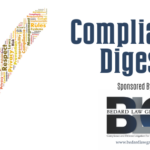A District Court judge in Maryland has granted a defendant’s motion to dismiss after it was sued by a pro se plaintiff for violating a number of statutes, including the Fair Debt Collection Practices Act because, among other claims, the defendant was not allowed to use the last four digits of the plaintiff’s Social Security number as the access code on the defendant’s payment portal.
A copy of the ruling in the case of Young v. National Credit Audit Corp. can be accessed by clicking here.
The plaintiff obtained a lease for an apartment, and renewed the lease for a second year. During the second year, he notified the owner of the apartment that he was moving out. He was sent a bill for terminating his lease early, which he did not pay. The owner placed the debt with the defendant for collection.
In April 2020, the plaintiff received an email from the defendant regarding the debt and was told he could access the account online using the last four digits of his Social Security Number. Fourteen months later, the plaintiff disputed the debt, asked for a number of documents to verify the debt, and asked for all further communications be in writing.
The defendant responded with two letters validating the debt and copies of the original lease agreement and other documents.
The plaintiff filed suit, alleging the defendant violated the FDCPA, the Equal Credit Opportunity Act, and the Fair Credit Reporting Act, among other claims. The plaintiff claimed the owner of the apartment never extended him a line of credit and thus could not be the original creditor to whom the debt was owed (he argued he was the original creditor because he provided his driver’s license and Social Security card), that he never consented to his Social Security number to be used by the defendant, that the defendant used unconscionable means to attempt to collect the debt, that he did not receive notice of his rights under Section 1692g of the FDCPA, and that the defendant failed to cease all communications per his request.
Judge Peter J. Messitte of the District Court for the District of Maryland makes relatively short work out of each of the plaintiff’s claims, for example finding that because the owner of the apartment was the entity to whom the debt was owed, that makes it the original creditor. The statute cited by the plaintiff claiming the defendant misused his Social Security number applies only to credit cards, Judge Messitte noted, so the plaintiff’s claim is not valid.
Regarding the claim that the email he received did not have the proper disclosures, the statute of limitations on the plaintiff’s claim had expired, Judge Messitte ruled, since the complaint was filed more than a year after the plaintiff received the emails.
Finally, Judge Messitte noted, the plaintiff never sought to have all communications ceased; he asked for all communications to be in writing. The defendant “cannot be deemed to have violated an order that was never given,” the judge wrote.









